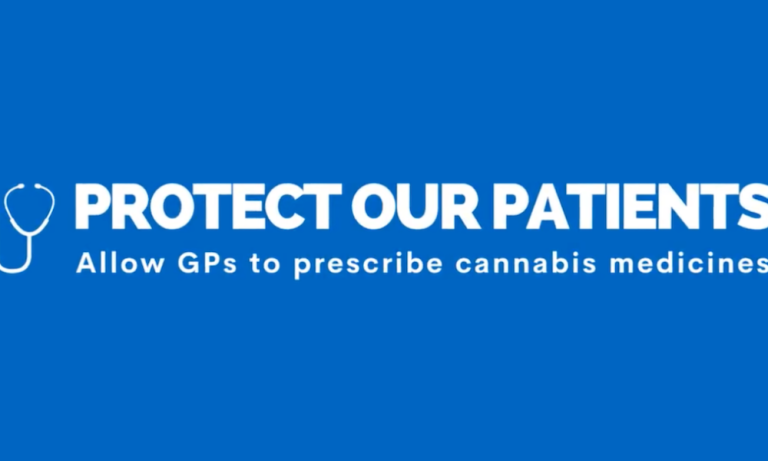A new campaign calling for GPs to be allowed to prescribe cannabis in the UK has been launched by a collaboration of industry organisations.
The campaign, led by the Cannabis Industry Council (CIC), the Medical Cannabis Clinicians Society (MCCS), Volteface, and Maple Tree Consultants, is calling for GPs to have the same rights as consultants when it comes to prescribing cannabis medicines in the UK.
Since the Government allowed medical cannabis in 2018, around 1,000 patients have received prescriptions for the three licensed cannabis medicines prescribed through the NHS. Meanwhile upwards of 20,000 patients are prescribed unlicensed cannabis products privately.
However, there are still thought to be approximately 1.8 million people in the UK self-medicating with cannabis from the illicit cannabis market.
Under UK law a prescription for cannabis must be initiated by a specialist consultant on the General Medical Council (GMC) register. GPs can only support prescribing under what is known as a shared-care agreement.
With over 36,000 practicing GPs in the UK, experts believe that allowing them to initiate prescriptions would open up access to medicinal cannabis for many more patients across the country.
This has been the case in Australia, where GPs have been permitted to prescribe cannabis-based medicines since 2019 and over 300,000 prescriptions for cannabis have now been written.
GPs on the Channel Islands can also initiate prescriptions, with patient numbers growing faster on the islands of Jersey and Guernsey than on mainland UK.
Julian Birch is a GP with Lyphe Clinic and prescribes to patients in Jersey and mainland UK under shared care agreements.
“The Channel Islands have taken the viewpoint that GPs should be able to start people on cannabis treatment and I hope the UK will do the same in the future,” he said, speaking on the Doctors, Clinics and Data panel at Cannabis Europa in London on Tuesday 2 May.
GPs ‘open-minded’ to prescribing
There is also seemingly an appetite to prescribe among other GPs. A survey conducted by the Primary Care Cannabis Network (PCCN) in 2021 of more than 1,000 practicing UK GPs, found that 73% would be open-minded about prescribing cannabis. Almost a quarter of respondents said they would be willing to take on the role of prescribing and overseeing cannabis treatments.
One argument is that GPs may be better placed to prescribe cannabis as they are able to take a more holistic approach with their patients rather than just focusing on one condition of symptom.
Observational data from the UK has shown that patients who find cannabis medicines helpful may be living with several comorbidities alongside the condition for which the treatment is prescribed.
“As a GP it often works very well because we generally have more time to be patient-focused and ideally, can establish good, long term relationships,” Dr Birch added.
“Having a GP on the multidisciplinary team can be very helpful as well. It is helpful to have someone there thinking about things from a general medical point of view and beyond the specific condition model.”
Barriers facing doctors and patients
Professor Mike Barnes, who founded both the MCCS and CIC, said: “The current model for medical cannabis where only consultants can prescribe is simply not working in the interests of the majority of patients.
“We are calling for a meaningful, yet uncontroversial change for GPs to be allowed to prescribe medical cannabis to their patients. This change can be made in a relatively straightforward manner, and we will be setting out details in due course.
“We urge the industry to unite around this important agenda to protect our patients.”
A report published last year by drug reform agency Volteface, addressing some of the key barriers preventing doctors from prescribing cannabis, also identified GP prescribing as a means of opening up access.
Katya Kowalski, head of operations at Volteface and author of the report, commented: “Volteface is proud to support and stand alongside this initiative. It has been nearly five years since medical cannabis was legalised in the UK yet the number of legally prescribed patients remains low.
“Whilst there are a plethora of barriers to the UK’s medical cannabis system, one of the most pertinent blockers that could be solved through a simple policy change, is to allow GPs to initiate prescriptions.
“Frustratingly, cannabis-based medicines continue to be seen as a ‘last resort’ medicine in the UK. In fact, cannabis should be viewed as a medicine that can treat a variety of general practice issues such as sleep, anxiety and pain.”
The ‘Protect our Patients’ campaign is now seeking support from other organisations in the industry who share the same desire for change.
Hannah Deacon, director, Maple Tree Consultants, added: “Maple Tree welcomes this initiative. It is time that medical cannabis is more widely available to those that so badly need it and one way to do this is allow GPs to initiate prescriptions for their patients. This will also help to remove patients from the criminal market.
“There is still so much to do to support patients with access to this legal medicine and I hope to see the whole sector get behind this important initiative.”
To find out more about the campaign visit www.protectourpatients.co.uk
